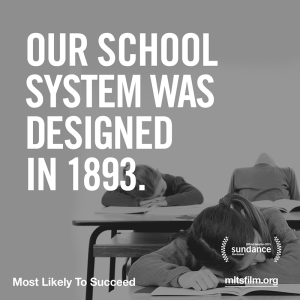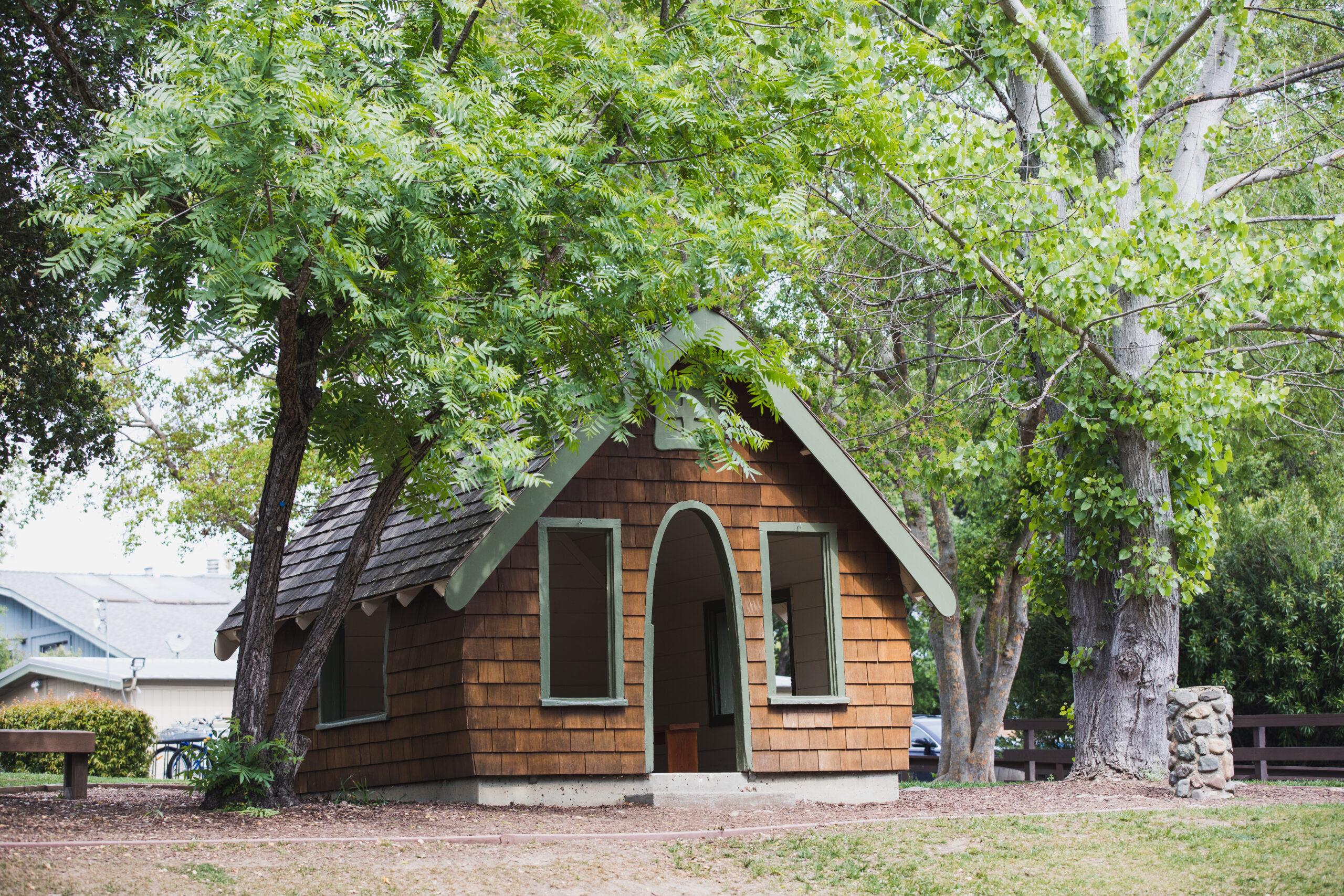Last Thursday evening, a packed theater of parents and educators from Hillbrook and the Los Gatos Union School District joined together to watch “Most Likely to Succeed,” one of the most widely discussed educational documentaries to appear in several years. The film chronicled High Tech High School, a San Diego-based charter school that has been at the leading edge of conversations about the future of education.
 Produced by filmmaker Ted Dintersmith, the documentary focuses on the project-based learning approach at the heart of the High Tech High experience. Through the experiences of two classes – and two students in particular – we see what it looks like when student learning is revealed through public displays of understanding, including a student-written and directed play and an elaborate, multi student-designed artistic installation that merged engineering and historical theory. One student’s inspiring success with the play, coupled with the other student’s struggles, failures, and ultimately success with the installation, highlights the engagement, student ownership, and real world learning that is at the heart of the educational experience.
Produced by filmmaker Ted Dintersmith, the documentary focuses on the project-based learning approach at the heart of the High Tech High experience. Through the experiences of two classes – and two students in particular – we see what it looks like when student learning is revealed through public displays of understanding, including a student-written and directed play and an elaborate, multi student-designed artistic installation that merged engineering and historical theory. One student’s inspiring success with the play, coupled with the other student’s struggles, failures, and ultimately success with the installation, highlights the engagement, student ownership, and real world learning that is at the heart of the educational experience.
Central to the documentary’s argument is a refrain increasingly heard from educators, corporate leaders, and thought leaders across our nation – the skills that students need for success in life are changing. As technology has made a growing number of jobs that highlighted muscle and intellectual prowess obsolete (as they noted in the movie, now that IBM’s Watson has conquered chess and Jeopardy, what’s next?), schools need to focus on the skills that are fundamentally human. What are those skills?

An article in this past weekend’s New York Times, “The Best Jobs Require Social Skills,” argues that what we learned in preschool is the key to success in the work world. Cooperation, empathy, and flexibility – skills commonly taught in early childhood programs – are increasingly understood to be essential skills for lifelong success. “Work has become more like preschool,” the author Claire Cain Miller insists, noting that “Jobs that require both socializing and thinking, especially mathematically, have fared best in employment and pay.” She points to the work of James Heckman, a Nobel-prize winning economist, who argues that “character, dependability, and perseverance are as important as cognitive achievement.”
At Hillbrook, we have always believed that social emotional skills are as important as academic achievement. From Kindergarten study teams, where they learn to work together as they explore shared passions, to the 8th grade play, where the entire class comes together to produce a complex theatrical production, we create numerous opportunities for students to work together and to focus on being their best, both as individuals and as a group. So does it work?
Last May, we reconnected with the class of 2011 as they prepared to graduate from high school and head off to college. We asked them to talk about their memories of Hillbrook and how it had prepared them for high school, and created this video to help tell their story.
In addition to talking about how well they were well prepared academically, students spoke glowingly about how they were known as individuals at Hillbrook, and they remembered the emphasis on communication and collaboration that clearly positioned all of them to thrive in high school, despite attending an incredibly diverse set of high schools. Perhaps the most memorable line in the video for me is from the student who notes that Hillbrook taught him to learn how to learn, a skill that will ensure success in whatever environment he finds himself.
As a school, we are incredibly proud of the accomplishments of these extraordinary young people, and yet watching “Most Likely to Succeed” I am reminded that we need to keep asking ourselves how we can continue to provide an extraordinary educational experience that remains vibrant and relevant in a world that is ever-changing. As they note in the movie, we are increasingly preparing children for jobs that do not exist today.
Equally as important, we are educating children, not designing widgets. As Sir Ken Robinson notes in the film, education is like gardening. We need to create the conditions to help children grow and thrive. Mary Orem, one of Hillbrook’s founders could not have agreed more. “As the twig is bent, the tree will grow,” she often said. 80 years later, we continue to heed her words.
